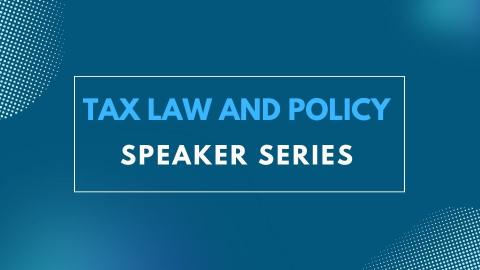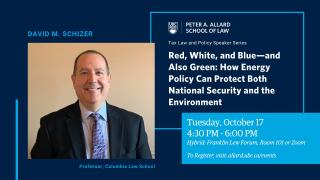Too often, energy policy protects the environment while neglecting national security, or vice versa. Since each goal is critical, this Article shows how to advance both at the same time.
To avoid depending on the wrong suppliers, the U.S. and its allies should pursue two strategies. First, they should cut demand for fossil fuel. Along with making it easier to stop buying from the wrong suppliers, slashing demand also reduces greenhouse gas emissions and pollution. Yet although these are significant national security and environmental ad-vantages, there is an offsetting national security risk: like fossil fuel, the main alternative—clean energy—also can foster dependence on insecure or potentially hostile suppliers (like Congo and China). In response, the U.S. and its allies should ramp up domestic production of clean energy technology, while also encouraging households and businesses to use it.
Second, since the transition to clean energy will take time, the U.S. and its allies also need to tap new sources of fossil fuel in countries that are secure and friendly. Yet since new fossil fuel development raises familiar environmental concerns, this Article proposes three ways to do it while still reducing emissions and pollution. First, these new sources should be as “clean” as possible (for example, natural gas instead of coal). Second, in adding new capacity, the goal should be to replace other fossil fuel sources, not to add to them (for example, so more production in the U.S. means less production in Russia). Third, new sources should be flexible, so they can ramp up and scale back as needed. Fortunately, these shifts are relatively easy for U.S. shale producers—indeed, more so than for others—and can be encouraged with the right regulatory approach.
While government intervention is needed to pursue these goals, policymakers should strive to harness the private sector’s capacity to innovate, cut costs, and enhance quality. A moratorium on new fossil fuel development is counterproductive, entrenching a status quo that depends too much on coal, as well as on insecure and hostile energy suppliers. In-stead, the best approach is to “price” the relevant national security and environmental costs with Pigouvian taxes, motivating businesses and consumers to mitigate these costs and letting them choose how to do it. Yet if Pigouvian taxes are not politically feasible, this Article recommends a heuristic called “the marginal efficiency cost of energy”: policymakers should account for all the social costs of each source—private costs, national security costs, and environmental costs—and strive to replace high-cost sources with low-cost sources. This framework should guide all aspects of energy policy—from permits and regulations to rate-setting, mandates, moratoriums, subsidies, and government leases—so policy-makers stay focused on both environmental and national security goals.
This lecture qualifies for 1.5 CPD credits.
Related event: Professor Schizer will also give a lecture on his latest book, How to Save the World in Six (Not So Easy) Steps: Bringing Out the Best in Nonprofits, at 12:30 on October 17. Complimentary copies of the book will be provided by the Ranieri Fund for Nonprofit Education at Columbia Law School. Registration is required for the lunchtime talk, please RSVP here.
Speaker
- Graduate Programs
- General Public
- All Students
- Alumni
- Continuing Professional Development
- Faculty
- Staff
- Research Talks


